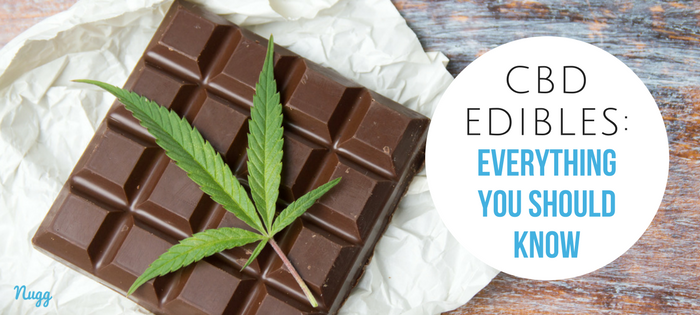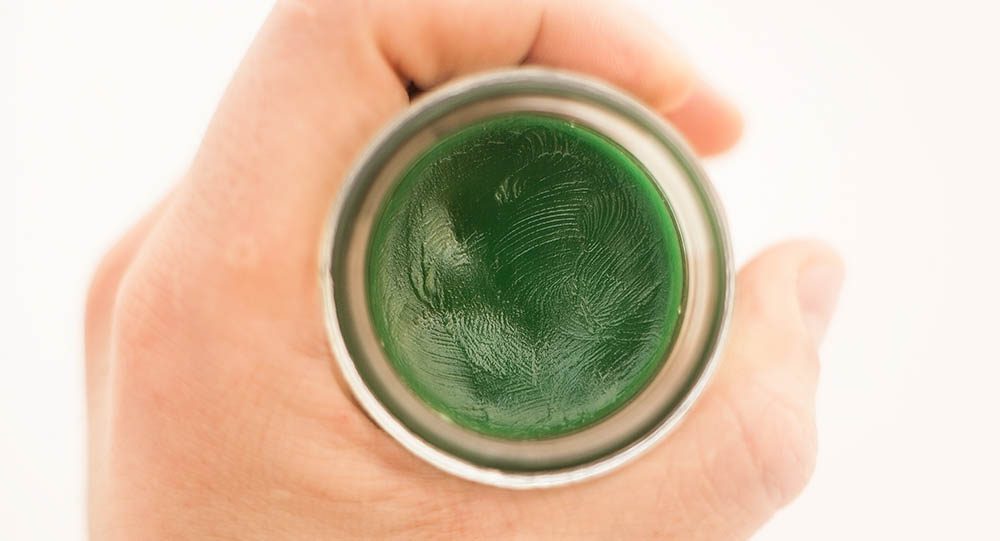-
What you will learn in this post:
Cannabidiol (CBD) use has come a long way since it was first discovered by American chemist Roger Adams in 1940. Scientists are still unraveling the cannabinoid's therapeutic properties, but as a cannabis compound capable of boosting levels of anandamide ("the bliss molecule"), it's clear that this cannabinoid has some benefit.
So what does CBD feel like?
Does CBD Get You High?
A proven anxiolytic, analgesic, and neuroprotectant, CBD influences the mind and body in myriad ways. But does CBD get you high? The answer is "no," but it can still give you a cerebral massage, so to speak. CBD may elevate overall well-being by acting as a natural aid for pain, anxiety, and depression symptoms, thus supporting its projected $16 billion valuation in the medical sphere by 2026.1
The fact that consumers can feel CBD's effects without plunging into a state of intoxication makes it a valuable choice for all age groups. Unfortunately, apprehension and misunderstandings have kept many people from trying CBD, despite 42.6% of consumers favoring it for anxiety, 42.5% for sleep problems, 37% for stress, and 37% for general health and well-being.2
When consumed with THC, does CBD get you high?
THC, depending on the dose and individual, can induce intoxication. While some research demonstrates that CBD may potentially mediate the effects of THC, other studies indicate that this is not the case.3 Regardless, it's recommended that new consumers start with low doses, as it is possible to become intoxicated when consuming CBD and THC together.4
The psychological effects of CBD do not include intoxication. CBD can alter your mood and perception without impairing motor coordination and causing cognitive decline. In a majority of states, you can drive after consuming CBD, but not if it contains more than 0.3% THC. Scientists attribute CBD's cognition-enhancing abilities to its neuroprotective effects.5
However, heavy doses of THC may trigger unpleasant feelings, such as anxiety, memory impairment, and slowed reaction time. Most full-spectrum CBD products contain low doses of THC so that the effects do not become unpleasant. Still, it's important to consider whether your CBD contains THC as the intensity of effects varies based on THC levels, individual metabolism, administration route, and absorption rate.
Based on functional neuroimaging studies, the neurophysiological effects of THC and CBD are widely different from one another.6 CBD possesses anticonvulsant, anxiolytic, and antipsychotic effects, but it doesn't cause acute effects on cognitive or motor performance as THC does. CBD consumption isn't associated with significant effects on blood pressure or pulse rate, either.
What Does CBD Feel Like?

CBD won't transport you to mind-bending states of awareness like THC might, but it does have the potential to transform the lives of patients. Research suggests that CBD may be a desirable remedy for treating anxiety, depression, schizophrenia, and other types of psychotic disorders.
But exactly how does CBD oil make you feel?
The answer depends on numerous factors, such as age, weight, gender, tolerance, overall health, route of administration, dosage, strain, and biochemistry. But there are common effects most users experience.
In animal models, CBD demonstrates a reduction in anxiety, depression, and stress-related behaviors.7 According to the outcome of a retrospective observational study, CBD-dominant treatments produce a positive impact on anxiety, depression, and pain while improving general well-being in patients with moderate to severe symptoms; patients with mild symptoms reported no noticeable effects.
Unlike THC, cannabidiol doesn't have acute effects on motor or cognitive performance, pulse rate, or blood pressure.6
Real or Imagined: Can You Feel CBD?
Does CBD have a unique feeling, or is it a placebo effect? Many individuals who use CBD feel calmer, more balanced, and have a greater sense of mental and physical comfort after consuming CBD. However, some elements of the experience may be attributed to the mind.8 The mind is powerful enough to make you believe that you've already consumed a specific medicine without having consumed anything - a phenomenon known as “the placebo effect.”
A good way to think of it is like this: Just as the brain sends signals for pain perception after an injury, placebos activate specific neuronal pathways to produce a neurobiological reaction. This reaction may cause changes in emotions, appetite, sleep, pain, etc. The placebo effect is especially good at releasing feel-good chemicals called endorphins.9
So can you feel CBD, or is it all in the mind?
Researchers at New York-based Syracuse University (SU) recently discovered that CBD's pain-relieving qualities are partly due to the placebo effect; patient expectations combined with the cannabis compound's pharmacological properties contributed to more significant pain reduction.
How Does CBD Oil Make You Feel?

CBD is considered by many to be their own “pick-me-up” in a bottle. Infused oils can be dropped onto or beneath the tongue for symptomatic relief within minutes. And since you can carry tincture bottles in your bag or pocket with ease, you can savor the feeling wherever you might be.
The CBD oil tincture product category leads the way in terms of demand, interest, and sales, not to mention convenience, discretion, and privacy. In 2021, this category of the U.S. cannabis market ranked number one above all other product categories. Moreover, CBD oil tincture sales spilled over $1 billion during that year and have been rising ever since.
So how does CBD oil make you feel?
Different CBD oil products may produce different results, particularly if you switch between full-spectrum, broad-spectrum, and isolate. Oils that are enriched with more compounds will deliver stronger symptomatic relief. You won't feel "high," but you will feel at ease.
What Do CBD Gummies Make You Feel Like?
The onset time for CBD gummies is longer than it is for sublingual oils, sprays, and smokable or vaporizable products, with most people noticing the effects materializing 30-60 minutes post-consumption. The duration of effects when you consume CBD gummies is also longer, with most edible CBD products lasting 5-8 hours. An individual's body weight, tolerance level, dosage, metabolism, and unique biochemistry can change the experience from person to person.10
So what do CBD gummies make you feel like?
The stronger the CBD percentage of an edible product, such as a gummy, the more intense and noticeable the effects will likely be. However, there are other factors, such as whether or not it contains other cannabinoids like THCV or CBG, that influence how therapeutically potent a CBD gummy may be. CBD gummies produced using full-spectrum or broad-spectrum extracts stimulate the ECS more strongly because the presence of other cannabinoid compounds and certain ingredients may work synergistically via the entourage effect.
What Should I NOT Feel From CBD?

Now that you know what CBD should feel like, it can help to understand what it should not feel like. While CBD is generally considered safe to consume, there is the possibility of adverse effects at particularly high doses. Although not common and usually not serious, the adverse effects of CBD can be unpleasant. Fortunately, adverse effects are avoidable with proper preparation and knowledge of the subject.
The biggest threat to consumer safety is due to cannabis' federally illegal status, which can limit safety standards, proper labeling, and quality control. Consequently, this lack of oversight compromises consumer safety, with many contaminated and untested products filtering into the mainstream market.
Let's explore some of CBD's potential side effects and risks and some reasons why negative consequences might arise:
Potential Drug Interactions
Because of how it is processed in the body, CBD may interact with certain medications. Diarrhea, dry mouth, epilepsy, fatigue, sedation, vomiting, gastrointestinal issues, and liver abnormalities surfaced as the most common drug-drug interactions in human studies exploring the efficacy of CBD for epilepsy and psychiatric disorders.11
Visit a doctor for clarity on whether or not CBD will interact with blood thinners, antidepressants, or other medications you might be taking.
Unclear or False Labeling
You wouldn't eat something if the list of ingredients had been tampered with, so why would you consume CBD that doesn't contain what it says on the bottle? One investigation found that 42.85% of CBD products had more cannabidiol than what the packaging claimed (under-labeled), 26.19% lacked the amount claimed (over-labeled), and less than one in three products (30.95%) were labeled accurately.12
Purchasing from state-licensed medical cannabis dispensaries can reduce the risk of over- or under-labeled CBD products.
Contamination and Impurities
Third-party lab testing is essential for proving the product is free from heavy metals, pesticides, and other harmful contaminants like mold. Failure to follow health and safety standards puts buyers at risk of consuming hazardous contaminants and impurities. Unfortunately, due to a lack of regulatory oversight, many CBD suppliers (particularly those selling products online or on the illicit market), cannot provide proof of testing.
Since every CBD consumer has a unique biochemistry, the experience depends entirely on the person. If you suffer from any severe underlying conditions or are using another type of prescribed medication, it would be best to dodge CBD and other types of cannabis products until you get a doctor's go-ahead.
References
- Rapin L, Gamaoun R, El Hage C, Arboleda MF, Prosk E. Cannabidiol use and effectiveness: real-world evidence from a Canadian medical cannabis clinic. Journal of Cannabis Research. 2021;3(1). doi:https://doi.org/10.1186/s42238-021-00078-w ↩︎
- Moltke J, Hindocha C. Reasons for cannabidiol use: a cross-sectional study of CBD users, focusing on self-perceived stress, anxiety, and sleep problems. Journal of Cannabis Research. 2021;3(1). doi:https://doi.org/10.1186/s42238-021-00061-5 ↩︎
- Englund A, Oliver D, Chesney E, et al. Does cannabidiol make cannabis safer? A randomised, double-blind, cross-over trial of cannabis with four different CBD:THC ratios. Neuropsychopharmacology. 2022;48(6):869-876. doi:https://doi.org/10.1038/s41386-022-01478-z ↩︎
- Laprairie RB, Bagher AM, Kelly ME, Denovan-Wright EM. Cannabidiol is a negative allosteric modulator of the cannabinoid CB1 receptor. Br J Pharmacol. 2015;172(20):4790-4805. doi:10.1111/bph.13250 ↩︎
- Osborne AL, Solowij N, Weston-Green K. A systematic review of the effect of cannabidiol on cognitive function: Relevance to schizophrenia. Neuroscience & Biobehavioral Reviews. 2017;72:310-324. doi:https://doi.org/10.1016/j.neubiorev.2016.11.012 ↩︎
- Martin-Santos R, Crippa JA, Batalla A, et al. Acute effects of a single, oral dose of d9-tetrahydrocannabinol (THC) and cannabidiol (CBD) administration in healthy volunteers. Current pharmaceutical design. 2012;18(32):4966-4979. doi:https://doi.org/10.2174/138161212802884780 ↩︎
- García-Gutiérrez MS, Navarrete F, Gasparyan A, Austrich-Olivares A, Sala F, Manzanares J. Cannabidiol: A Potential New Alternative for the Treatment of Anxiety, Depression, and Psychotic Disorders. Biomolecules. 2020;10(11). doi:https://doi.org/10.3390/biom10111575 ↩︎
- Gertsch J. The Intricate Influence of the Placebo Effect on Medical Cannabis and Cannabinoids. Medical cannabis and cannabinoids. 2018;1(1):60-64. doi:https://doi.org/10.1159/000489291 ↩︎
- Miller FG, Colloca L, Kaptchuk TJ. The Placebo Effect: Illness and Interpersonal Healing. Perspectives in Biology and Medicine. 2009;52(4):518-539. doi:https://doi.org/10.1353/pbm.0.0115 ↩︎
- MacCallum CA, Russo EB. Practical considerations in medical cannabis administration and dosing. European Journal of Internal Medicine. 2018;49(49):12-19. doi:https://doi.org/10.1016/j.ejim.2018.01.004 ↩︎
- Huestis MA, Solimini R, Pichini S, Pacifici R, Carlier J, Busardò FP. Cannabidiol Adverse Effects and Toxicity. Current Neuropharmacology. 2019;17(10):974-989. doi.org/10.2174/1570159X17666190603171901 ↩︎
- Bonn-Miller MO, Loflin MJE, Thomas BF, Marcu JP, Hyke T, Vandrey R. Labeling Accuracy of Cannabidiol Extracts Sold Online. JAMA. 2017;318(17):1708-1709. doi:https://doi.org/10.1001/jama.2017.11909 ↩︎
The information in this article and any included images or charts are for educational purposes only. This information is neither a substitute for, nor does it replace, professional legal advice or medical advice, diagnosis, or treatment. If you have any concerns or questions about laws, regulations, or your health, you should always consult with an attorney, physician or other licensed professional.




